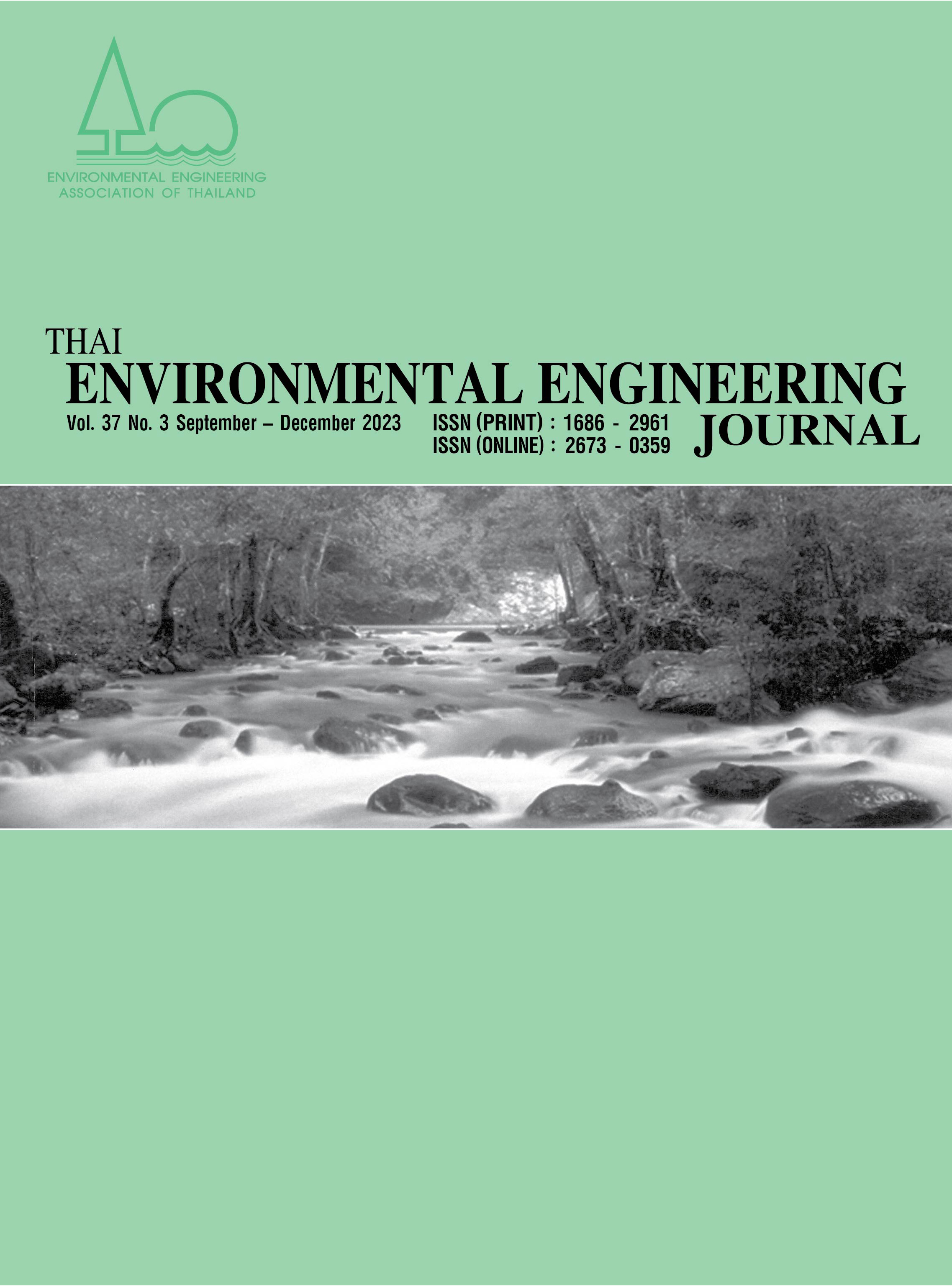Assessment on Health Impacts and Costs of Fine Particulate Matter from Passenger Transport in Bangkok Metropolitan Region
Main Article Content
Abstract
The world has faced fine particulate matter (PM2.5) problems affecting human health. Globally, PM2.5 has caused 4.14 million pre-mature deaths, which is the fourth leading cause of death in the world. According to the annual report of the Pollution Control Department, the PM2.5 value in Bangkok exceeded the national standards for 89 days in 2022. Transport was the dominant source of fine particulate matter in Bangkok. This research aims to develop an emission inventory and assess the health impacts and health costs of fine particulate matter from passenger transport in the Bangkok Metropolitan Region. The emission inventory was divided into two parts : fuel use and fuel production. Health impacts and health costs were quantified in the units of disability-adjusted life years (DALY) and Baht, respectively. According to research results in 2022 and 2027, the scenario that shifts 30% of private passenger transport to electric trains can reduce health impacts to 15,202 DALY/year and 9,011 million Baht (in 2022) and to 17,178 DALY/year and 10,883 million Baht (in 2027). Future policies should promote electric public transport and minimize the use of private vehicles.
Article Details
References
Health Effects Institute. 2020. State of Global Air 2020. Special Report. Boston. MA: Health Effects Institute.
Pollution Control Department. 2020. Situation and management of air pollution problems and the voice of Thailand.
Winijkul, E. and Punpukdee, P. 2022. Final Project Report "Improving Calculation in the Emission Inventory Management Platform".
Chavanaves, S., Fantke, P., Limpaseni, W., Attavanich, W., Panyametheekul, S., Gheewala, S. and Prapaspongsa, T. 2021. Health impacts and costs of fine particulate matter formation from road transport in Bangkok Metropolitan Region. Atmospheric Pollution Research. 12(10): 101191.
Prapaspongsa, T., Gheewala, S. H., Mankong, P., Rotthong, M., Sakpheng, P., Chavanaves, S., Balasuriya, T., Deuja, A. and Oo, P. Z. 2021. ThaiSD v1.0: Thai Spatially Differentiated Life Cycle Impact Assessment Method version 1.0 – Background Report.
Fantke, P., Evans, J. R., Hodas, N., Apte, J. S., Jantunen, M. J., Jolliet, O. and McKone, T. E. 2016. Health impacts of fine particulate matter. In Global guidance for life cycle impact assessment indicators (pp. 76-99). SETAC.
Kaenchan, P. and Gheewala, S. H. 2017. Budget constraint and the valuation of environmental impacts in Thailand. The International Journal of Life Cycle Assessment. 22(11): 1678-1691.
Boontatao, P. and Chuepeng, S. 2021. Impacts of Alternative Diesel Fuels on Engine Emissions under the Highway Fuel Economy Test Cycle (Doctoral dissertation, Kasetsart University).
Wang, C., Tan, J., Harle, G., Gong, H., Xia, W., Zheng, T., Yang, D., Ge, Y. and Zhao, Y. 2019. Ammonia formation over Pd/Rh three-way catalysts during lean-to-rich fluctuations: The Effect of the catalyst aging, exhaust temperature, lambda, and duration in rich conditions. Environmental Science and Technology, 53(21): 12621-12628.
Hathairat, A., Panyametheekul, S., Prapaspongsa, T., Winijkul, E., Suriyawong, A., Lee, H., Ayudhya, M. J. N. and Chotanapund, V. 2023. Assessment on Health and Ecosystem Impacts and Costs of Ozone Formation from Passenger Transport in Bangkok Metropolitan Region Thai Environmental Engineering Journal, 37(2): 11-22.


